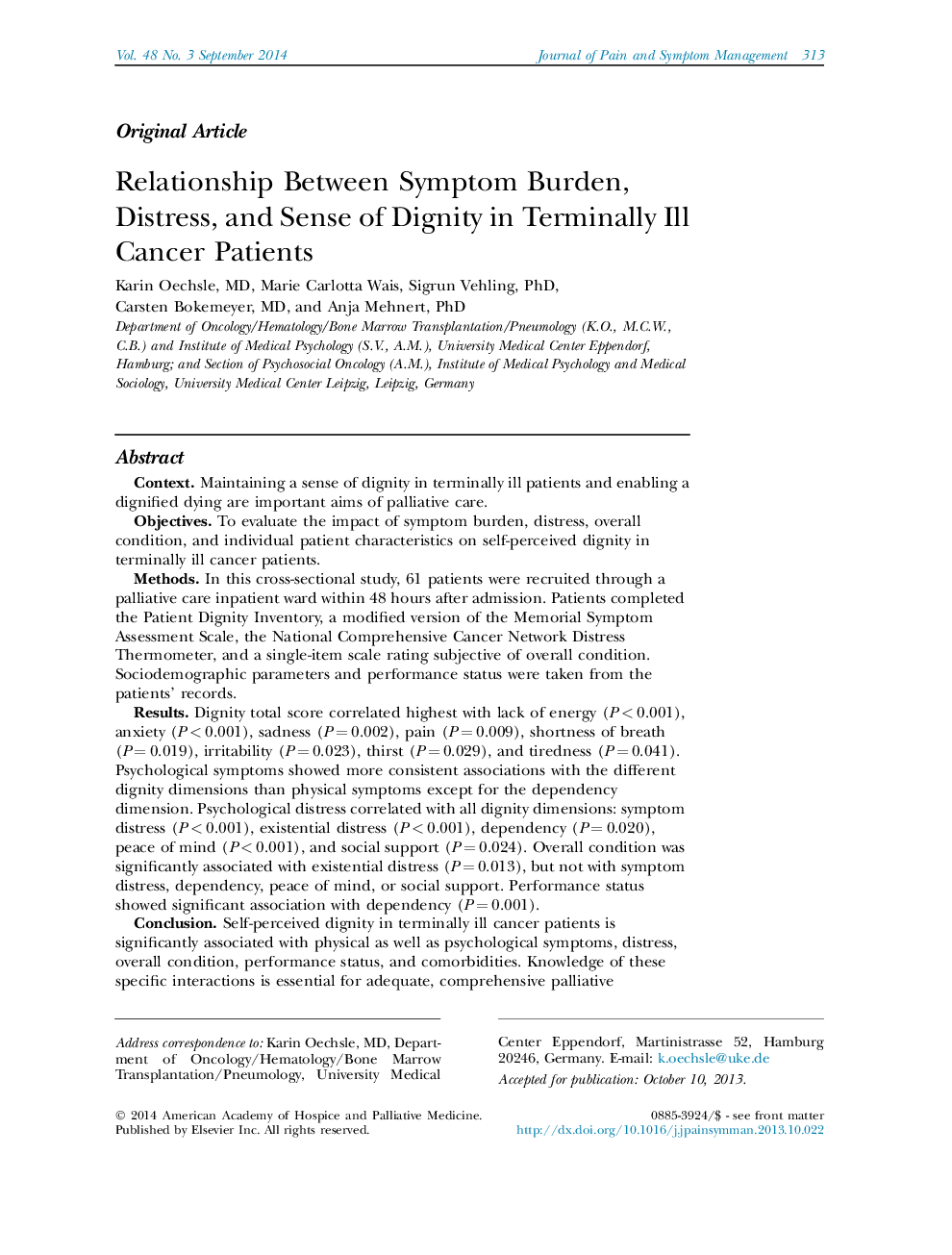| Article ID | Journal | Published Year | Pages | File Type |
|---|---|---|---|---|
| 2724134 | Journal of Pain and Symptom Management | 2014 | 9 Pages |
ContextMaintaining a sense of dignity in terminally ill patients and enabling a dignified dying are important aims of palliative care.ObjectivesTo evaluate the impact of symptom burden, distress, overall condition, and individual patient characteristics on self-perceived dignity in terminally ill cancer patients.MethodsIn this cross-sectional study, 61 patients were recruited through a palliative care inpatient ward within 48 hours after admission. Patients completed the Patient Dignity Inventory, a modified version of the Memorial Symptom Assessment Scale, the National Comprehensive Cancer Network Distress Thermometer, and a single-item scale rating subjective of overall condition. Sociodemographic parameters and performance status were taken from the patients' records.ResultsDignity total score correlated highest with lack of energy (P < 0.001), anxiety (P < 0.001), sadness (P = 0.002), pain (P = 0.009), shortness of breath (P = 0.019), irritability (P = 0.023), thirst (P = 0.029), and tiredness (P = 0.041). Psychological symptoms showed more consistent associations with the different dignity dimensions than physical symptoms except for the dependency dimension. Psychological distress correlated with all dignity dimensions: symptom distress (P < 0.001), existential distress (P < 0.001), dependency (P = 0.020), peace of mind (P < 0.001), and social support (P = 0.024). Overall condition was significantly associated with existential distress (P = 0.013), but not with symptom distress, dependency, peace of mind, or social support. Performance status showed significant association with dependency (P = 0.001).ConclusionSelf-perceived dignity in terminally ill cancer patients is significantly associated with physical as well as psychological symptoms, distress, overall condition, performance status, and comorbidities. Knowledge of these specific interactions is essential for adequate, comprehensive palliative care.
